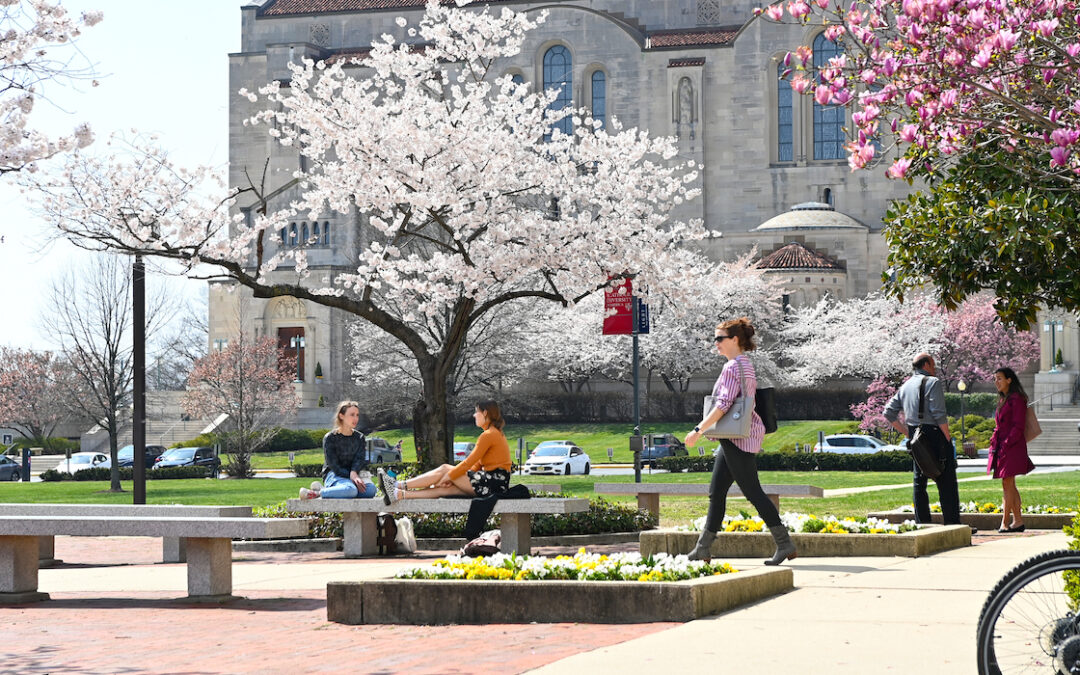When grandparents do estate planning, they often want to provide for their grandchildren’s education. They seek to ensure that assets put aside for grandchildren are used to cover the costs of college and nothing else. Toward this end, they should consider adding a Testamentary Trust to their will.
It’s a common belief that Testamentary Trusts are useful only to the wealthy, but they’re beneficial to people in a range of financial circumstances. An attractive feature of a Testamentary Trust is that it enables a grandparent to essentially “rule from the grave.” The trust can require that a grandchild be able to access the trust only if engaged in the pursuit of a college degree and only if they are in compliance with all other conditions which the grandparent may have stipulated in the trust.
What Is a Testamentary Trust?
A Testamentary Trust is a trust created by a Last Will and Testament. The trust is not activated until the grandparent dies. In the will, the grandparent includes a special section that expressly creates the trust. The assets to be placed in the trust are identified and a description of the intended use of assets is also provided. Testamentary Trusts are not just for education. They may be designated by a grandparent to assist a grandchild in buying a home, starting a business, or for any other future purpose.
A Testamentary Trust involves three parties. The grantor is the person who creates the trust in their will in order to transfer assets to it posthumously. The beneficiary is the person who is to be the recipient of distributions from the trust. The trustee oversees the trust and manages the assets until the beneficiary becomes responsible for them. A Testamentary Trust expires when the beneficiary receives the assets. A probate court ensures that the trustee is managing the trust as stipulated by the grantor.
As grantor of the Testamentary Trust, a grandparent can change its terms at any time before he or she dies by making changes to their will. However, once the grandparent dies, the trust becomes irrevocable and can never be changed. The will goes through probate — the legal process of administering a decedent’s estate — during which the probate court monitors its administration until the trust has performed as intended on behalf of the grandchild. Since the terms of the trust are to be carried out after the grantor’s death, the choice of trustee is important. This person has a fiduciary duty to carry out the deceased grandparent’s wishes exactly as described in the trust.
A Testamentary Trust is different from a Family Trust in that it is only activated after the grantor has died and his or her will has been probated. Family Trusts are created and activated during the grantor’s lifetime.
Tax Benefits
Once a Testamentary Trust has been created, it becomes a taxable entity in its own right and is thus subject to income taxes.. If the trust earns more than $600 in income in a year, a U.S. Income Tax Return for Estates and Trusts (Form 1041) must be submitted for it that year. The tax rate is determined by the amount of income earned by the trust in that year. If assets are placed into this type of trust, the beneficiary is not required to pay taxes on the income generated by the trust, since this would be double taxation
There are also capital gains tax benefits to placing assets into a Testamentary Trust. A person who sells an asset for a profit is required to pay capital gains tax on that profit, but if legal ownership of an asset is transferred from one person to another through a Testamentary Trust, the capital gain received by the beneficiary is disregarded.
Options in Testamentary Trusts
When grandparents decide to set up a Testamentary Trust for the college education of grandchildren, they must stipulate how the assets are to be used. The terms can be as flexible or restrictive as they wish. For example, grandparents may limit the use of funds only to payments for tuition and room & board as they come due. They may stipulate that a single lump sum is to be distributed to the grandchild upon their initial enrollment in college. Grandparents may opt to distribute a fixed amount at the beginning of each year and let the grandchild decide how to allocate funds to college costs. A grandparent may choose to require that funds only be distributed to the grandchild if enrolled in their alma mater, is majoring in physics, enrolls in a public college, or any similar requirements. As grantor, the grandparent calls the shots.
A grandparent should include a clause in the trust that resolves what is to happen if a grandchild doesn’t go to college. In such a case, the grandparent may require that the assets be distributed to the grandchild on their 30th birthday or that failure to attend college results in forfeiture of the assets in the trust, which would then be distributed in a different manner also described in the trust.
A Testamentary Trust can be designed to benefit either one grandchild or two or more grandchildren. To prevent an older grandchild from reducing the trust disproportionately to the detriment of younger grandchildren, “equalization provisions” may be used. These are provisions that allow the breaking up of a trust for two or more grandchildren into separate trusts that are designated for the benefit of each individual grandchild.
Advantages and Disadvantages
Advantage — Grandparents set the rules: In addition to the tax benefits described above, a major advantage of a Testamentary Trust is that it gives the grandparent total control over when, how, and for what purpose assets are distributed. This is especially helpful to grandparents who have young grandchildren. With a Testamentary Trust, assets remain protected until the child is old enough to be financially responsible.
Advantage — Life Insurance Funding: A Testamentary Trust can be funded with life insurance proceeds. To do so, the grandparent needs to list the trustee as beneficiary of the policy. When the grandparent dies, the policy will pay to the trust.
Disadvantage — Must Go Through Probate: A Testamentary Trust cannot avoid probate, which can be costly. While a trust may have low upfront costs, fees from probate court could add up. The trustee needs to meet with the probate court annually until the beneficiary receives the assets. If the trust lasts many years, court fees can be significant. And because it must go through probate, estate taxes on the assets in a Testamentary Trust cannot be avoided.
Disadvantage — Complications May Arise: Leaving the establishment of a trust to occur after death can be problematic. The designated trustee may be unsure how to interpret the provisions of the trust and clarification is unavailable or the trustee may simply decline to accept the responsibility. In such cases, a family member may be appointed by the court as a replacement trustee even though this may be contrary to what the grandparent would have wanted. Therefore, it’s advisable that a grandparent, while still living, be certain that their designated trustee is ready, willing, and able to assume responsibility.
A grandparent who wants to create a trust and have control over asset disbursement may consider it to be in their best interest to create a revocable trust. It’s easier to discuss matters with other parties and make appropriate changes. Plus, revocable trusts aren’t subject to probate since they are created outside of a will.
*****************
A Testamentary Trust is only one among several options for funding a grandchild’s college education. There are other types of trusts such as Coverdell Education Savings Accounts and Crummey Trusts that are also effective in preserving assets for a college education. All have different advantages and disadvantages.


Recent Comments